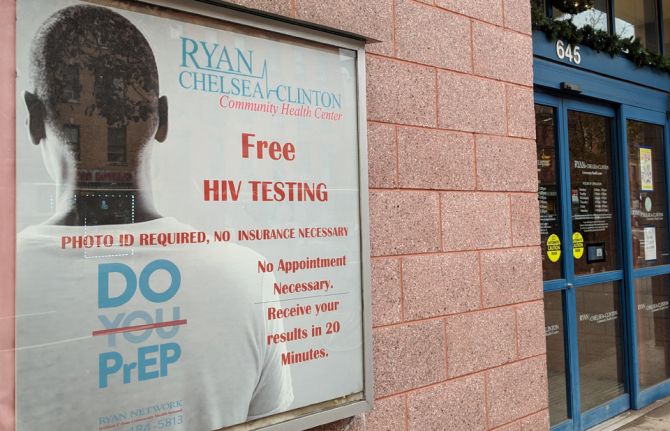

Press Statement
UNAIDS welcomes pledge by the President of the United States of America to stop HIV transmission in the country by 2030
06 February 2019 06 February 2019GENEVA, 6 February 2019—UNAIDS welcomes the pledge by the President of the United States of America to stop HIV transmission in the country by 2030. The President made the announcement during his State of the Union Address to Congress on 5 February 2019.
“The United States of America’s steadfast commitment to the HIV response and its support to UNAIDS’ call to end AIDS by 2030 have saved millions of lives,” said Michel Sidibé, Executive Director of UNAIDS. “I commend the President’s commitment to end AIDS in the United States, which will require a response grounded in human rights to reach all people living with and at risk of HIV, including the most marginalized.”
UNAIDS estimates that around 1.2 million people were living with HIV in the United States in 2015. The epidemic is largely concentrated in urban environments and disproportionally affects gay men and other men who have sex with men and African American, Hispanic and Latino women and men, as well as people who use drugs.
“The contribution by the United States to the global response to HIV, made through support for the President’s Emergency Plan for AIDS Relief, has made a tremendous impact,” said Mr Sidibé. “Globally, new HIV infections among children have been reduced by 35% since 2010 and 22 million people are accessing antiretroviral therapy, saving millions of lives.”
Through the President’s Emergency Plan for AIDS Relief, the United States has invested more than US$ 80 billion in the global response to HIV since 2003. “Strong, continued support for the global response from the United States is required given there is a US$ 5 billion shortfall from the US$ 26 billion required for an effective response to HIV in 2020,” said Mr Sidibé.
UNAIDS looks forward to seeing the details of the new United States strategy on HIV and to continuing to work closely with the United States to end AIDS, both in the country and around the world.
UNAIDS
The Joint United Nations Programme on HIV/AIDS (UNAIDS) leads and inspires the world to achieve its shared vision of zero new HIV infections, zero discrimination and zero AIDS-related deaths. UNAIDS unites the efforts of 11 UN organizations—UNHCR, UNICEF, WFP, UNDP, UNFPA, UNODC, UN Women, ILO, UNESCO, WHO and the World Bank—and works closely with global and national partners towards ending the AIDS epidemic by 2030 as part of the Sustainable Development Goals. Learn more at unaids.org and connect with us on Facebook, Twitter, Instagram and YouTube.
Contact
Sophie Barton-Knotttel. +41 22 791 1697/+4179 514 6896
bartonknotts@unaids.org
UNAIDS Media
tel. +41 22 791 42 37
communications@unaids.org
Press centre
Download the printable version (PDF)
